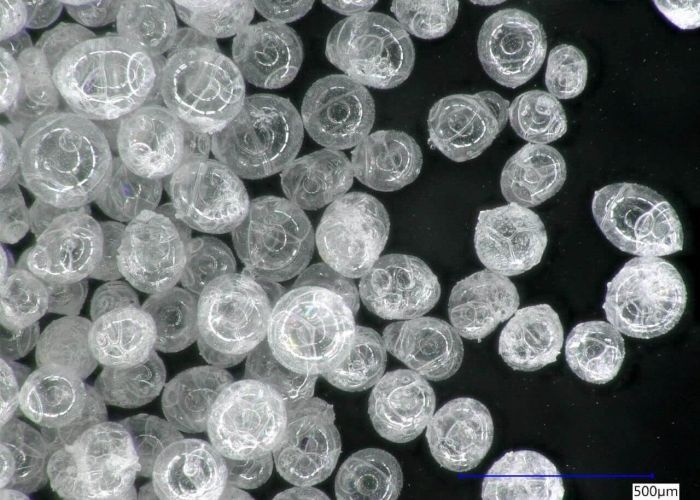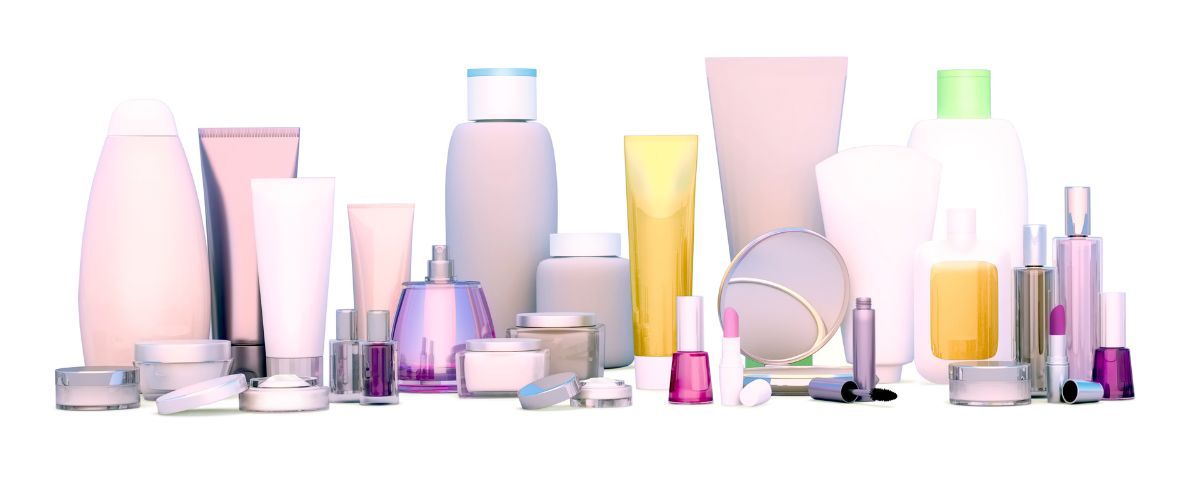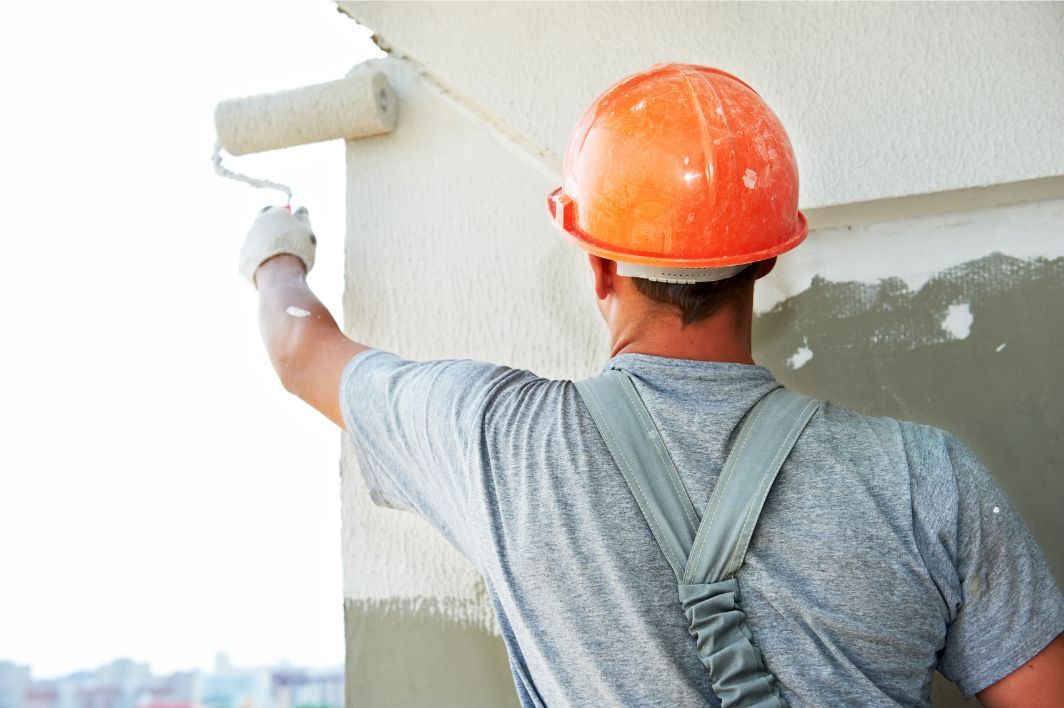A versatile and lightweight raw material for construction chemicals, paints, and cosmetics
Perlites are natural volcanic minerals that expand when heated to over 1,000 °C, developing their characteristic popcorn-like structure.
These properties make perlite a versatile raw material: it is used as a thermal insulating additive in construction chemicals, as a filler in paints and coatings, and as a sustainable alternative to microplastics in cosmetics. With its combination of lightness, functionality and environmental friendliness, various types of perlites offer an innovative solution for numerous applications.
Discover how various types of perlites can enrich your projects and contribute to sustainability.

Chemical properties
Perlites are natural and environmentally friendly materials derived from volcanic glass, which, due to their high content of silicon dioxide (70-75%) and other oxides such as aluminum and iron oxide, are chemically stable.
Inert: Various types of perlites do not react with other materials, making them ideal for mixtures in construction, industry, and cosmetics.
Heat-resistant: Due to their high melting point of 1,260-1,340 °C, various types of perlites improve fire protection and the fire resistance of construction elements.
Durable: They are extremely durable and resistant to moisture, UV rays, and chemicals.
Sustainable: Their natural origin ensures environmentally friendly processing without harmful emissions.
Detergents: The perlite-based product SIPOR® SP from HPF is a high-quality natural alternative to microplastics for cosmetic applications. The small perlite spheres in SIPOR® help, for example, to gently remove skin impurities.
Technical properties
- Lightweight through expansion: variation in density and volume
- High temperature resistance
- Thermal and acoustic insulation
- Low density
- High degree of whiteness
SIPOR® - High-quality HPF perlite products
HPF products are known under the following brands:
SIPOR® PC
Paints and coatings
SIPOR® CC
Construction products
SIPOR® SP
Alternative to microplastics in cosmetic products
Perlite and application areas
The versatile properties of various types of perlites open up countless possibilities for technological, ecological, and industrial applications.
Construction chemicals: Various types of perlites are used in plasters, mortars, and thermal insulating materials. They improve insulation, reduce weight, and increase the fire resistance of construction materials.
Paints and coatings: In paints, various types of perlite act as fillers, providing a uniform structure and excellent coverage. Due to their lightness and chemical stability, various types of perlites are ideal for high-quality coatings.
Cosmetics: Various types of perlites are an ecological alternative to microplastics and are used in scrubs, shower gels, and other cosmetic products.
Various types of perlites are natural, environmentally friendly, and versatile materials that impress with their lightness, stability, and sustainability.
Important properties for the use of SIPOR® SP in cosmetics
SIPOR® SP is an ecological alternative to microplastics in cosmetic applications. It stands out for the following properties:
- dermatologically tested
- 100% natural, pure, and odorless
- closed-pore spherical surface
- high degree of whiteness
- pH-neutral
- soft touch
- long-lasting
- extremely lightweight
- environmentally friendly
- free of metals

Recently, SIPOR® SP received the "dermatologically tested" seal, making it suitable for cosmetic products such as scrubs and shower gels. It offers gentle exfoliation and leaves the skin feeling velvety. Thanks to the closed-pore structure of the perlite spheres, dead skin cells are gently removed, preventing impurities and achieving a revitalized skin appearance.
The use of SIPOR® SP actively contributes to environmental protection. Microplastic particles are widespread in water, soil, air, and even in food, and can contain high concentrations of pollutants. Aquatic organisms ingest these particles, with potentially negative effects on the food chain. Using SIPOR® SP as a natural alternative reduces the impact of microplastics without compromising product performance.
HPF Minerals pays great attention to the high standards of quality and accurate production of SIPOR® SP to meet both the needs of the cosmetics industry and the environmental aspects.
The main features of various types of perlites
Various types of perlites are distinguished by their unique physical and chemical properties, making them indispensable for many applications:
Closed-pore spherical surface: The smooth and spherical structure ensures a gentle tactile sensation and allows for even distribution, ideal for applications in cosmetics, construction, and the paint industry.
High degree of whiteness: Various types of perlites are characterized by a high degree of whiteness, making them a preferred choice for aesthetically demanding applications such as paints and coatings.
pH neutral: Various types of perlites are pH neutral and do not react with other materials, making them perfect for sensitive mixtures, for example in cosmetics or construction materials. Extremely lightweight: The lightness of various types of perlites makes them an ideal filler in applications where weight reduction is crucial, such as in thermal insulating materials or lightweight construction elements.
Environmentally friendly: Various types of perlites are a natural and sustainable raw material. They are recyclable, non-toxic, and actively contribute to reducing environmental impact – an ideal alternative to less sustainable materials such as microplastics.

Perlite production: from raw material to versatile material
Perlites are obtained from natural volcanic rocks. In an industrial production process, various types of perlites are rapidly heated to temperatures between 850 and 1,200 °C. The water bound in the rock evaporates explosively, expanding the particles by 10 to 20 times their original volume and giving them their characteristic lightness.
Quality control ensures the monitoring of physical properties such as density, porosity, and particle size, to optimally adapt various types of perlites for applications in construction chemicals, paints, and cosmetics. Production takes place with environmentally friendly and energy-efficient processes. Modern production facilities with high capacities also ensure constant availability.
The success story of perlite
Perlite is a natural raw material derived from volcanic rocks. Perlite was first used industrially at the beginning of the 20th century. Its low density and exceptional thermal insulation properties made perlite a valued material for construction and insulation projects.
Over time, applications have significantly expanded: in addition to construction chemicals, perlite is used in paints, coatings, cosmetics, and environmental technologies. Modern research has discovered further possibilities for use, such as an alternative to microplastics or as a filtration material in the food industry. FAQ
What properties do various types of perlites have?
Various types of perlites are extremely lightweight, heat-resistant, thermally and acoustically insulating, and pH neutral. They are characterized by a high degree of whiteness, a closed-pore spherical surface, and their environmental compatibility.
How are various types of perlites produced?
Various types of perlites are obtained from volcanic rocks and expanded through rapid heating. During this process, the bound water evaporates, expanding the particles by 10 to 20 times their original volume.
Where are various types of perlites used?
They are used in construction (e.g., in plasters, mortars, and insulating materials), in paints and coatings, as well as in cosmetic products as an ecological alternative to microplastics.
Can various types of perlites be recycled?
Yes, they are recyclable, non-toxic, and sustainable. Their natural origin and environmental compatibility make them an ideal material for resource-saving and sustainable applications.
More Information?
For all questions regarding various types of perlites, we are happy to assist you. Please do not hesitate to contact us – we will be happy to respond.






